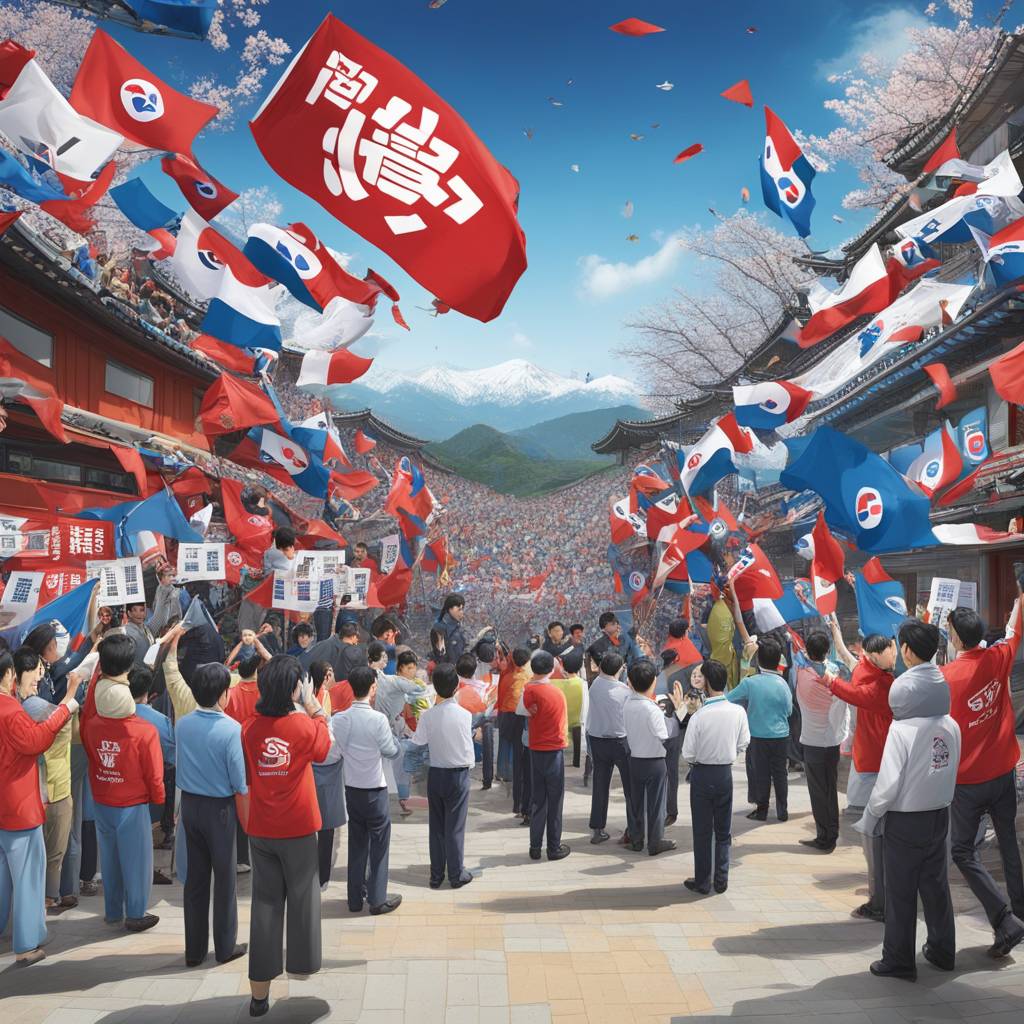The stage is set for a tense presidential election in South Korea as candidates from the ruling Democratic Party (DP), the main opposition People Power Party (PPP), and a newly formed minor third party gear up for a heated battle. The PPP’s candidate, Han, has taken a strong stance against the current president, Yoon, branding him and his administration as “criminals” and vowing to bring them to justice. Han’s campaign message has resonated with supporters who are frustrated with the lackluster economy and are looking for change.
Despite Han’s aggressive campaign tactics, Yoon’s approval rating remains low at around 34 per cent, with public discontent simmering over the state of the country’s economy. The opposition DP and the third party are reportedly ahead in some polls, indicating a shift in public sentiment. Han’s rival, Lee, has urged voters to see the election as a referendum on the past two years under Yoon’s leadership. Lee criticized Yoon’s approach to the North Korean issue, accusing him of escalating tensions with the nuclear-armed neighbor.
The cost of living in South Korea has soared under Yoon’s administration, and many citizens are feeling the strain of economic challenges. Lee pointed to the government’s incompetence and highlighted the dangers of Yoon’s hawkish stance towards North Korea, warning that peace on the Korean Peninsula is at risk. The upcoming election is seen as an opportunity for voters to express their dissatisfaction with the current administration and push for a change in leadership. South Korea’s political landscape is shifting as the election draws closer, with three main candidates vying for the presidency.
South Korea’s presidential term limits restrict candidates to serving only a single term, and Yoon’s tenure is set to end in 2027. As the election approaches, each candidate is rallying their supporters and outlining their visions for the country’s future. Han, Lee, and the third party candidate are all competing for votes, with their campaigns focusing on addressing the country’s economic challenges, fostering peace on the Korean Peninsula, and holding the current administration accountable for its actions. The election outcome will shape the direction of South Korea’s governance for the years to come, with voters playing a crucial role in determining the country’s future leadership.


